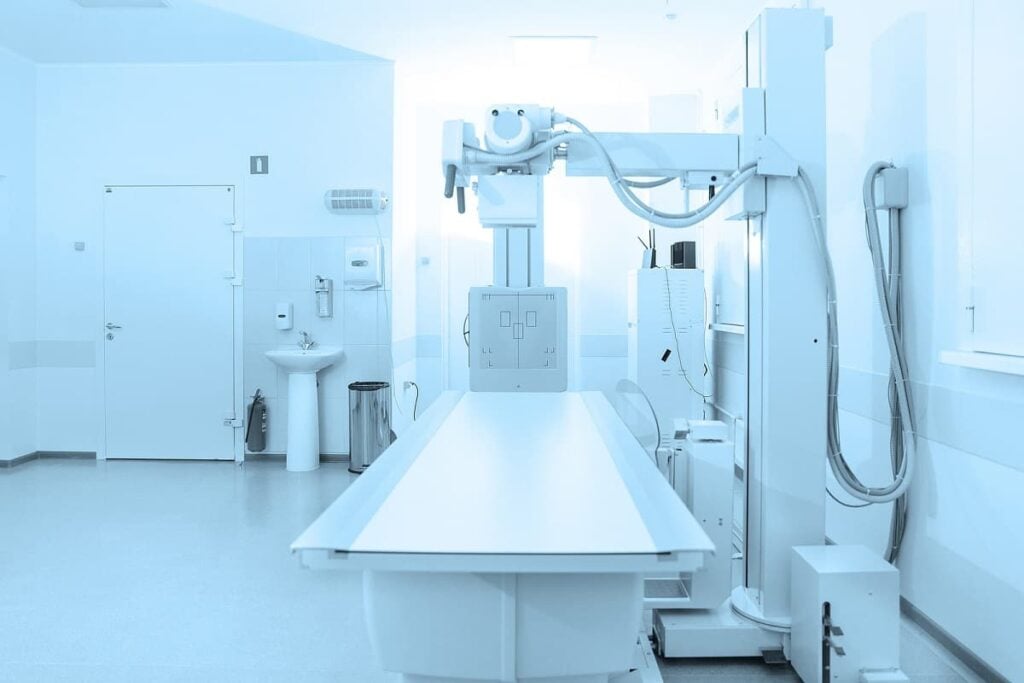8 AI Value-Based Care Startups That Took Funding in 2019
Table of contents

Earlier this month we told you about our trip to Finland where we came across a handful of innovative healthcare startups. Many see emerging technologies like artificial intelligence as a way to curb sky-rocketing healthcare costs, which are expected to hit about $10 trillion globally by 2022. In the United States, which spends about $3.65 trillion per year on medical care, researchers have found that more than 25% of those dollars are basically wasted in one way or another. As much as $300 billion of the nearly $1 trillion in waste is due to various kinds of inefficiencies and over treatment, while another $250 billion has basically been attributed to overpriced aspirin. One solution seeing widespread adoption is a shift to what’s called value-based care, a system that rewards healthcare providers based on outcomes rather than sheer volume in the old fee-based paradigm.

The incentive is to provide the best care available at the lowest price possible. The challenge is figuring out how to measure quality in quantifiable ways. That’s becoming easier thanks to big data and artificial intelligence. A number of companies are developing machine learning platforms that ingest data from diverse sources – from electronic health records and wearables to clinical outcomes from millions of previous cases – to identify high-risk patients or to recommend more effective treatments, as a way to curb costs.
This sort of AI healthcare management includes everything from diagnostics to remote patient monitoring. In this article, we’re going to cover eight companies that are offering what we consider enterprise-level systems that directly integrate patient care with other aspects of the healthcare process. All of them also took funding in 2019.
Value-based Care Goes Public
Salt Lake City-based Health Catalyst (HCAT) spent about half the year as a startup, raising a $100 million Series F in February for a total of $377 million since it was founded in 2008. It was valued at about $1.3 billion when the company opted to go public in July and currently sits at a market cap of $1.35 billion. It has attracted investors like healthcare company Kaiser Permanente, premiere VC firm Sequoia Capital, and OrbiMed, one of the biggest healthcare-focused VC firms with more than $15 billion of assets under management. Health Catalyst’s flagship product, Data Operating System (DOS), is an AI-powered analytics platform with tons of various apps that the company claims can improve clinical, workflow, and financial outcomes.

In one case study, UnityPoint Health, a Midwestern network of hospitals, clinics, and home care services, leveraged DOS to improve the management of blood transfusions, a life-saving therapy that can also cause harm and is associated with longer hospital stays, higher medical costs, and even disease and death. Over six years of employing DOS and other data-driven analytics, UnityPoint reduced direct costs by $17.4 million and used more than 58,000 fewer units of red blood cells. That’s the good type of blood money.
Value-Based Care is Precision Medicine

Digital Twin for Healthcare
We began the year talking about the concept of digital twins that dynamically model physical objects in a digital world. GNS Healthcare is kind of doing something similar using machine learning for human biology. The nearly 20-year-old company out of Cambridge, Massachusetts has raised $77.3 million, including a $23 million Series D in July led by insurance giant Cigna (CI). In fact, GNS Healthcare boasts a long list of investors from biopharma and health insurance companies that include Celgene (CELG), Amgen (AMGN), and Blue Cross, among others. GNS Healthcare calls its causal machine learning platform Reverse Engineering Forward Simulation (REFS).

REFS transforms millions of data points – clinical, genetic, genomic, lab, imaging, drug, consumer, geographic, pharmacy, mobile, proteomic data, and others – into digital models of human biology that run hundreds of thousands of “what if” scenarios to discover causal relationships. Over time, REFS will learn which treatments are most effective in terms of both outcome and cost based on real-world evidence.
Value-Based Care at The End

Value-Based Care as an Early Warning System

AI Matchmaking for Value-Based Care
You don’t need to be a machine learning algorithm to pick up on the pattern emerging here. For Silicon Valley-based Health[at]Scale, the use of AI for value-based care is summed up as being able to “match patients to the right treatments, by the right providers, at the right time.” Founded in 2015, the startup raised a $16 million Series A and is led by some big brains out of MIT, Harvard, Stanford, and even the University of Michigan. While the company is a bit light on the details of its datasets, Health[at]Scale seems to focus on matchmaking between patients and doctors who are best suited to treat their conditions. The company also says its platform will help root out waste, fraud, and abuse.
Value-Based Care Through Patient Monitoring


Medical Informatics is also working with Texas Children’s Hospital on developing an algorithm for predicting cardiac arrest (an electrical disturbance in the heart) in pediatric patients. That sounds like a tough order given that there’s not very good data – the food upon which algorithms feed – surrounding sudden cardiac arrest in populations under age 25.
Welcome to the Machine


It has gained quite a bit of media attention for its ability to help prevent sepsis, an infection responsible for up to a third of all hospital deaths thanks to the proliferation of superbugs. Regional medical center Southeast Health, for instance, has seen a 25.5% average monthly reduction in sepsis cases since the Jvion Machine came online.
Conclusion
Jvion also claims its customers, which number more than 30 healthcare systems, report average reductions in hospitals of 30% in “preventable harm incidents” and avoidable cost savings of $6.3 million a year. Other companies in this list can also make real claims of ROI for their AI-based solutions. These sort of real-world applications of AI with real-world impacts are making a strong business case for the widespread adoption of machine learning and related technologies in healthcare. In our next article in this ongoing AI healthcare series, we’ll look at the related use of artificial intelligence in hospital operations.
Sign up to our newsletter to get more of our great research delivered straight to your inbox!
Nanalyze Weekly includes useful insights written by our team of underpaid MBAs, research on new disruptive technology stocks flying under the radar, and summaries of our recent research. Always 100% free.














